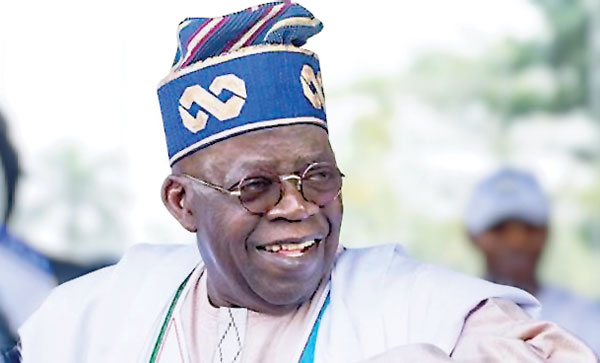President Bola Tinubu, on Tuesday, launched the Expatriate Employment Levy (EEL), a mandatory contribution imposed on organisations that employ expatriate workers in Nigeria.
He performed the ceremony at the presidential villa, Abuja confident that the levy will improve revenue, indigenization, and balancing employment in the country.
President Tinubu, who described the initiative as a game changer, noted: “It is important to know that EEL is a contribution recently approved by the government, which will impose effective timeline on expatriates working in this country, to be able to train and develop Nigerians.”
He added: “We expect revenue generation improvement, improved naturalization, and indigenization, employment of more Nigerians by foreign companies operating in this country, balancing of employment opportunities between Nigerians and expatriates, close wage gap between the expatriate and the Nigerian labour force by making it more attractive to hire Nigerians.
“We must assure Nigerians that there is light at the end of the tunnel, we might be going through difficult periods now, but when you look at the Infrastructure Concession Regulatory Commission, the Federal Ministry of Finance, Budget and National Planning and people manning the ship of this country, including Central Bank of Nigeria, they have collaborated and in the spirit of development and progress, we are glad that good effort is being made to retool, reengineer the finances of the country and make growth our hallmark.
“I’ve been further assured that the project has the capacity of plugging loopholes and gaps that have bedevilled the country in dealing with security challenges, movement of foreigners in and out of the country. Interestingly, this scheme will wield the dual fold of revenue generation as well as addressing employment challenges as salary gaps attendant in the remuneration of expatriate workers as compared with their Nigerian counterparts.”
The president declared his support for the programme, assuring that he will continue to encourage the operators, practitioners of immigration matters, and expatriate quotas.
But he warned: “Don’t use it as a bottleneck, don’t use it to frustrate potential investors.
“There will be clear lines of implementation and effective acceleration of aims and objectives of this program. Immigration matters and expatriate quotas, and relevant stakeholders, have to be effectively guided to make Nigeria the focus of the objective of this EEL.”
Speaking earlier, Minister of Interior, Olubunmi Tunji-Ojo informed that EEL is a Public, Private Project (PPP) and in line with 8-point agenda of the president especially on job security and economic growth.
He said: “The main essence is to be sure that if you are bringing an expatriate to work in Nigeria, it should be a job that no Nigeria has the skill to do. That’s the major objective of this particular initiative Balancing employment opportunities between Nigerians and expatriates and, of course, closing wage gaps between expatriates and the Nigerian labor force by making it more attractive to hire Nigerians
“Part of the motivation is to reduce the dependence of companies on foreign personnel. And of course to also reduce the rate at which renewers for expatriate quotas has been sought after by companies. If this is well implemented, of which we can assure your excellency, it will be duly implemented.
“We want to see a scenario whereby once an expatriate comes, there will be a knowledge transition period of which Nigeria should be able to be trained to be able to take over this responsibility and create opportunities for our teeming youth.”
In his remark, chairman, Senate Committee on Interior, Adams Oshiomhole, praised what he called the bold initiative, saying that he had been worried “at the rate at which people come to Nigeria as tourists, and end up doing menial jobs across the land.”
